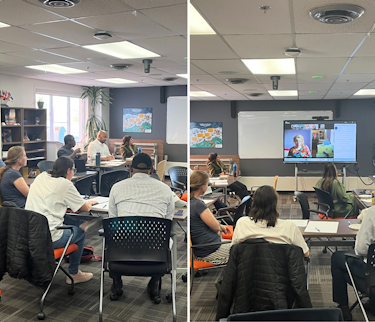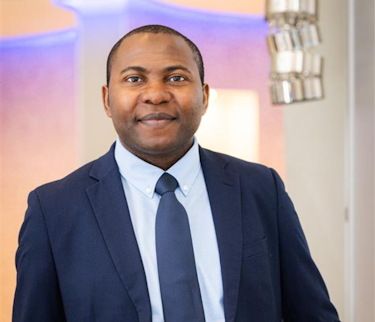Information Session for the Explore Program: Host Family Recruitment
Information session about the Explore Program and the role of host families, offered online and at Collège Nordique.
Free
Our cookies and those of our partners help improve your experience and analyze your use of the website. To learn all about cookies, check our privacy policy
On August 7, 2025, Collège Nordique marked an important milestone in its commitment to equity, diversity, and inclusion (EDI) with the launch of two new resources: a free, accessible online course for everyone, and a specialized library developed in collaboration with the Canadian Centre for Diversity and Inclusion (CCDI).
To inaugurate this initiative, a collaborative workshop led by Amadou Mfondi, a specialist in diversity policies in multicultural societies, brought together 25 participants to reflect collectively on EDI issues within the unique context of the Northwest Territories (NWT).
Divided into small groups, participants explored three main themes: diversity and living together in the NWT, Indigenous issues and living together, and unconscious bias and discrimination. Discussions highlighted the importance of better understanding the history of local communities, dismantling the biases that influence our behaviors, promoting the inclusion of people with disabilities, and strengthening intercultural collaboration and entrepreneurship as drivers of inclusion.
The workshop also underscored the desire to take concrete action toward reconciliation, including engaging directly with Indigenous communities and integrating these learnings into professional practices.

Entitled Introduction to Equity, Diversity, and Inclusion (EDI), this new online course provides an introduction to the fundamental principles of EDI from a northern Canadian perspective. Designed for French-speaking individuals across the three territories, it offers practical reflection on Indigenous issues, unconscious bias, and fostering better living together in diversity.
Structured into three progressive modules, the course covers:
Indigenous Peoples and EDI Issues in the NWT
Understanding Equity, Diversity, and Inclusion
Recognizing and Deconstructing Unconscious Bias
Accessible to anyone interested, the course combines self-paced learning with interactive activities and offers a digital badge certifying the knowledge acquired.

In addition to the course, Collège Nordique is making available to its community a specialized digital library, developed with the CCDI. This resource gathers books, guides, case studies, articles, and practical tools on EDI, with a French-language selection tailored to the needs of students, professionals, and community organizations in the North.
For the local and francophone community, this library is an invaluable tool: it provides easy access to quality content relevant to the northern context and the realities of minority francophone communities. Whether for enhancing a study project, improving professional practices, or supporting community initiatives, it serves as a reliable foundation for moving from reflection to action.
“At Collège Nordique, we reaffirm every day our commitment to supporting francophone organizations in the NWT and the broader francophonie in implementing more inclusive practices. The development of this new course and this EDI library is part of our actions to equip, inspire, and strengthen our community’s skills to foster the sustainable adoption of EDI practices.” — Mounir Barry, Director of Student Experience and Quality Assurance

With these two new resources, Collège Nordique aims to make EDI learning and tools accessible to as many people as possible, and to encourage concrete actions in professional and community settings. The August 7 workshop is one example: a space where dialogue flows freely, where listening and respect are central, and where shared ideas can turn into tangible actions.
Holding a Ph.D. in conflict studies, Amadou Mfondi is the EDI Coordinator for Francophone Immigration at the Fédération des communautés francophones et acadienne (FCFA) of Canada, in addition to teaching part-time at several universities in Canada’s francophonie. His areas of expertise include identity-based conflicts, multiculturalism, inclusive leadership, and community governance in minority language settings. Experienced in designing and delivering EDI training, he brings a collaborative and transformative approach, perfectly suited to northern and minority francophone realities.

Loading
Thank you for subscribing